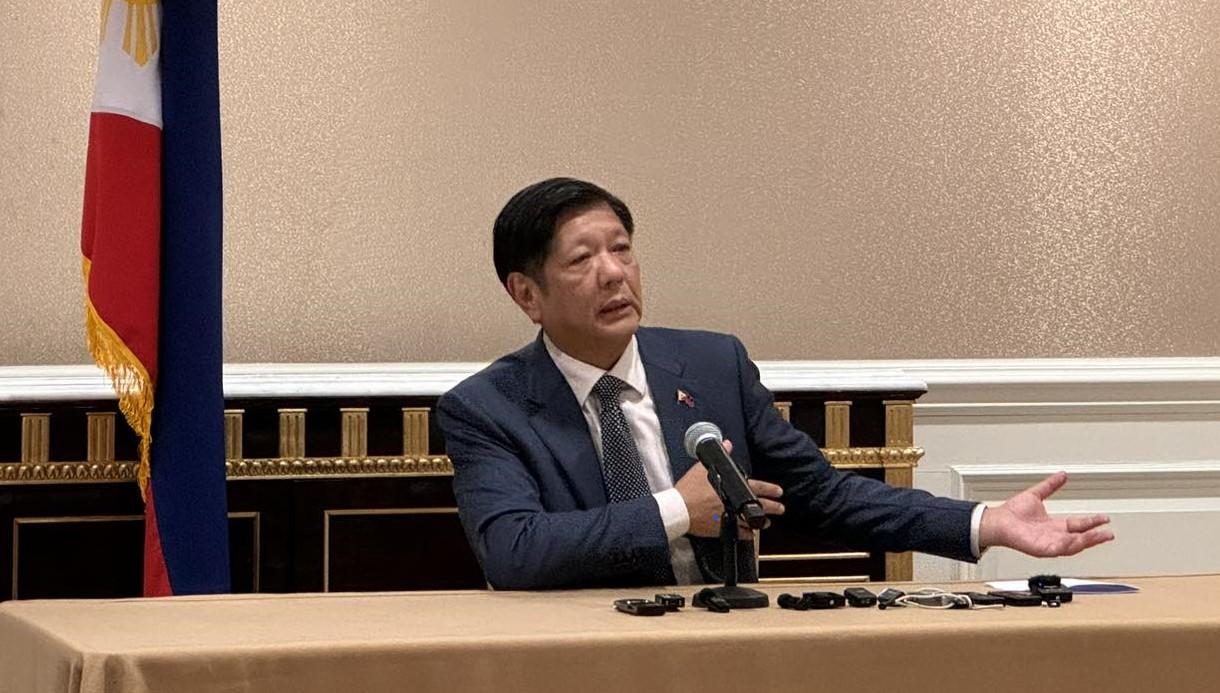Marcos: China investments unaffected by deals with US, Japan
By JON VIKTOR D. CABUENAS, GMA Integrated News Published April 13, 2024 12:40pm WASHINGTON, D.C. — Investments from China will not be affected by the recent Trilateral Leaders Summit here by the Philippines, the United States, and Japan, President Ferdinand “Bongbong” Marcos Jr. said Friday. “China will continue whatever investments they choose to make. This […]


By JON VIKTOR D. CABUENAS, GMA Integrated News
WASHINGTON, D.C. — Investments from China will not be affected by the recent Trilateral Leaders Summit here by the Philippines, the United States, and Japan, President Ferdinand “Bongbong” Marcos Jr. said Friday.
“China will continue whatever investments they choose to make. This is separate from any proposed or potential Chinese investments in the Philippines. How do I see how it will affect? I don’t see that it will affect, one way or the other,” the President told reporters in a press conference.
Philippine Ambassador to the United States Jose Manuel Romualdez on Wednesday said the Philippines is set to reap in some $100 billion in investments from the United States and Japan in the next five years.
Marcos’ statement comes a day after the Philippine leader participated in a trilateral meeting with US President Joe Biden and Japanese Prime Minister Fumio Kishida, in which they discussed their common vision for the Indo-Pacific region, and opportunities for enhancing trilateral cooperation.
Following the summit, leaders of the three countries released a Joint Vision Statement indicating the possibility of more combined naval training and exercises together, with Manila set to receive support for its defense modernization priorities.
Naval and air forces of the three countries, along with Australia, conducted a multilateral maritime cooperative activity (MMCA) last week in the West Philippine Sea, in line with their commitment to strengthen regional and international cooperation.
The Department of National Defense (DND) said the activity was a “show of unity” among the four countries, even as the agency expected Beijing to “malign” the exercise.
For its part, Beijing’s People’s Liberation Army (PLA) Southern Theater Command said it organized “joint naval and air combat patrols in the South China Sea” while the MCA took place.
“All military activities that mess up the situation in the South China Sea and create hotspots are under control,” it said in a statement. Further details about its military activities were not announced.
The Joint Vision Statement also reiterated the countries’ “serious concerns” over China’s “dangerous and aggressive” behavior in the South China Sea, as the leaders cited the 2016 Arbitral Ruling that states the Ayungin Shoal — a submerged reef among the Spratly Islands — lies within the Philippine exclusive economic zone.
China has refused to acknowledge the Permanent Court of Arbitration’s ruling that invalidated its nine-dash line. Its government earlier said it will continue to adhere to what it described as a “friendly consultation” with the Philippines after several Chinese vessels have been found “swarming” areas in the West Philippine Sea.
The China Coast Guard on March 23 water cannoned a Philippine resupply ship en route to the Ayungin Shoal, causing heavy damage and hurting three Filipino sailors. It was on a mission to provide supplies to the decrepit Navy vessel the BRP Sierra Madre, which has been aground in the country’s outpost in the area since 1999.
Latest data from the Philippine Statistics Authority (PSA) showed that the United States was the biggest recipient of Philippine exports in February with $947.83 million or 16.0% of the total, followed by Japan with $849.17 million or 14.4%.
In terms of imports, Japan was the second-biggest supplier of imported goods to the Philippines with $845.23 million or 8.8% of the total, behind China with $2.18 billion or 22.8%. Meanwhile, the United States came in sixth with $550.16 million. — VDV, GMA Integrated News














